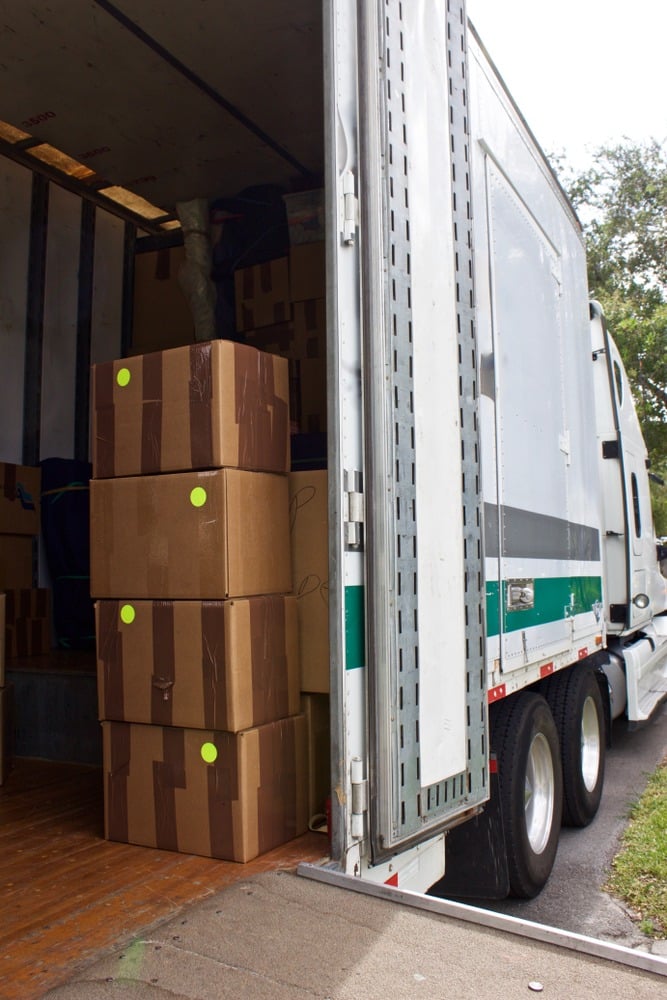What is the Difference Between Interstate and Intrastate Trucking?
Last updated Monday, November 4th, 2024

Here are the two main differences between interstate and intrastate trucking:
- Interstate trucking is when a vehicle transports goods between two or more states.
- Intrastate trucking means that a vehicle only transports goods within one state.
The Federal Motor Carrier Safety Administration (FMCSA) recently made some changes to who can operate a large truck. It noted that some individuals over 18 years old could operate commercial trucks intrastate––meaning they cannot make deliveries outside of their home state. However, once they turn 21, they’re eligible for interstate deliveries.
Additional Differences Between Interstate and Intrastate Trucks
Here are some more differences between interstate and intrastate trucking:
Different Trucks Work for Different Purposes
These trucks are usually used for intrastate purposes:
- Cement mixers
- Tow trucks
- Garbage trucks
- Dump trucks
Some of those trucks won’t even leave the county where they’re based. Now, here are some examples of trucks commonly used in interstate trucking:
- Refrigerated trucks used for transporting food
- Flat-bed trailers, such as those that transport cars
- Dry vans, one of the most popular types of commercial trucks
- Tanker-trucks
These trucks are suitable for long-haul trips that distribute goods throughout the country. Driving a car between states requires special training and licensure not relevant to some intrastate truckers.
Interstate Trucks Need DOT Numbers
If a trucker makes deliveries between states, their vehicle must have a DOT number given by the U.S. Department of Transportation (DOT). This number helps the government identify and track certain vehicles.
If a truck does interstate commerce, it also needs a DOT number if:
- It weighs more than 10,001 pounds.
- It transports more than eight passengers for money.
- It’s designed to carry 15 or more passengers, with or without financial incentives.
Some intrastate trucks also need DOT numbers if they transport hazardous materials. Yet, many intrastate trucks do not need DOT numbers.
Interstate and Intrastate Trucks Must Adhere to Different Regulations
Consider the following:
- Intrastate truckers must follow the rules set by the state. For instance, a trucker operating in Kentucky must follow the rules imposed by the Commonwealth of Kentucky.
- Interstate truckers must follow the rules set by the FMCSA, which sets rules for truckers that travel in and out of various states.
The rules set by state and federal agencies outline how long motorists can drive, how much cargo they can transport, and what happens if an accident happens.
Similarities Between Interstate and Intrastate Trucking
While interstate and intrastate trucking have many differences, they also have some similarities, such as:
All Truckers Have a Duty of Care
All truckers, whether they operate in-state or out-of-state vehicles, must uphold their duty of care. This means they must drive with reasonable caution while operating a motor vehicle. This also means they should refrain from potentially negligent behaviors, such as drinking and driving.
Negligent Truckers Can Face Liability
If a negligent trucker causes a collision, they (and their employer) can bear liability for any resulting damages, including the injured party’s:
- Medical bills
- Lost income
- Pain and suffering
- Property damage costs
- Funeral expenses
- Mental anguish
- Transportation costs
- Out-of-pocket accident-related damages
Injured Claimants Have a Limited Time to File Their Lawsuits
If someone suffers harm in a collision with a truck, they must file their lawsuit before their state’s statute of limitations expires. Each state has its own filing deadlines for lawsuits. For instance, if you live in Indiana, you could have two years to file your lawsuit, per IC § 34-11-2-4. However, if you live somewhere else, you could have even less time to file.
This deadline applies to both interstate and intrastate trucks. Moreover, the statute of limitations begins depending on where the accident happened, not where the trucker was coming from.
What Should I Do After Getting Hurt in a Truck Accident?
Regardless of whether you were hurt by an interstate or intrastate truck, you want to do everything possible to move forward from this traumatizing event. Some of these measures involve:
- Seeking medical attention. Truck accident-related injuries can range in severity, from minor cuts to massive internal bleeding. You shouldn’t delay medical attention; doing so could threaten your health and well-being.
- Tracking your losses. You want to recover each of your injury-related losses. So, you should keep track of your medical bills, doctors’ appointments, and other injury-related matters.
- Considering your legal options. You don’t have to represent yourself when pursuing compensation from a trucking company. Instead, you can partner with an injury lawyer. They can investigate your collision, calculate your losses, and pursue what you need to move forward.
Begin Your Free Case Review with Our Legal Team
Now that you know the differences between interstate and intrastate trucking, you can make decisions if you suffered harm in a collision. Isaacs & Isaacs Personal Injury Lawyers has more than 400 years of combined legal experience, and we’ve recovered $1 billion for injured claimants.
To begin your free case review with our truck accident team, call us today. During our conversation, we can discuss your options and move forward with legal action.











